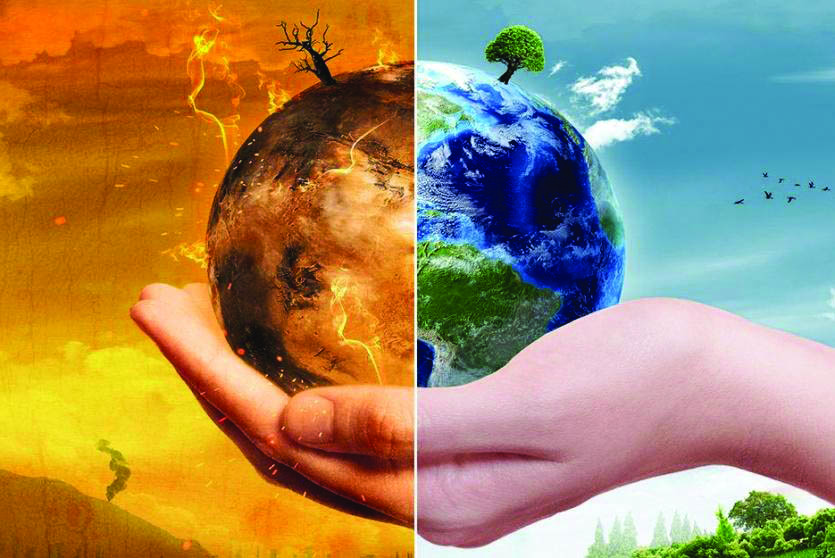By Majd Othman
KUWAIT: Climate change has affected global food security as rising temperatures, water scarcity, extreme events such as droughts and floods, and increased atmospheric carbon dioxide concentrations are affecting staple crops around the world. Global maize and wheat production declined in recent years due to extreme weather events and a general increase in water scarcity. Kuwait Times spoke with Jamal Ibrahim, Kuwaiti meteorologist and environmental expert, to explain the reasons for climate change and its effect on food security. "Climate change and hot temperatures have affected the world at all levels," he said. "As for us in Kuwait, we notice it in the winter that is not cold today as it was 20 years ago, and in the summer with the extremely hot temperature."
 Jamal Ibrahim
Jamal Ibrahim"The main reason for the climate change is the global warming resulting from the environmental destruction that is caused by humans, like using energy sources that are not environmentally friendly and building huge electricity generators which produce greenhouse gases such as carbon dioxide and ammonia," Ibrahim explained. "This creates a layer of radiation that cannot penetrate the atmosphere, leading to trapping the heat of the sun inside the globe's atmosphere, which leads to the rise in temperatures."
Ibrahim pointed out that hundreds of years ago, the Earth's atmosphere was clean because there were no external and harmful influences on it, such as electricity, cars, planes, and electricity generators, which are the main means of human environmental destruction. "Therefore, we in Kuwait must shift towards using more environmentally friendly energy," he said. "Climate change has led Kuwait's weather to be hot in the fall and spring, extremely hot in summer, and moderate in the short winter," he mentioned.
Food security
Regarding the effect of climate change on food security, Ibrahim said, "Climate change and food security are strongly related. Global warming leads to the destruction of crops. For example, some agricultural crops need a certain period and temperature to grow during the winter, and with the rise in temperatures and the shortness of the winter season, many crops have been destroyed."
"Food security today is not only affected by climate change," he added. "The increase in global population numbers is also one of the most important causes of food shortages and concerns. The Earth has less than three percent of potable water, and this is also an important factor in global food security."
 Solar power panels at a location in Kuwait.
Solar power panels at a location in Kuwait."Global warming is a serious issue that is speeding up with the increased emissions of harmful gases, and for that the whole world began to work on the transition towards the production of environmentally friendly energy such as solar, wood and recently the magnetic energy," he pointed out.
"Despite that, Kuwait is facing a serious challenge in implementing alternative energy resources, while the world is moving towards reducing the production of carbon dioxide by relying on alternatives and more environmentally friendly energy sources," he went on. "It is hard for Kuwait to apply some alternative energy sources such as diesel energy because it requires large areas of land, in addition to the nature of the atmosphere in Kuwait which is full of dust, which means that the state will need a large budget to clean it on an ongoing basis."
Ibrahim said that European countries are shifting towards using electric cars that do not lead to harmful emissions to the environment, unlike cars that depend on gasoline "This is one of the reasons that may force Kuwait to find alternative energy sources to use," he noted.











